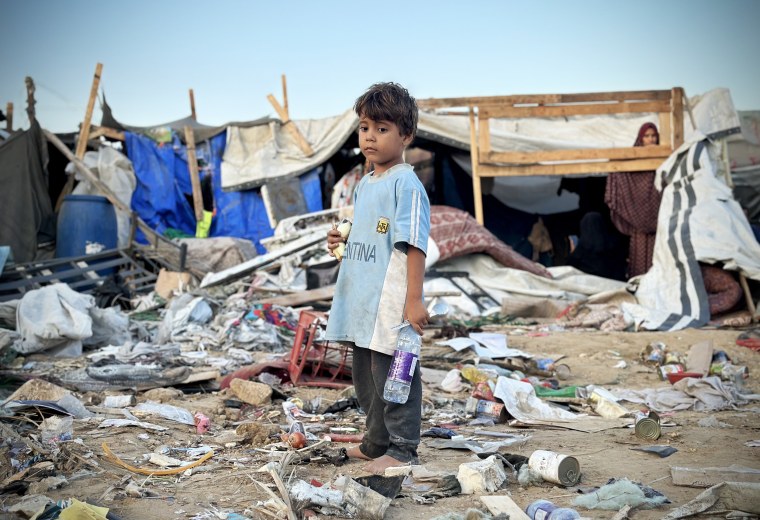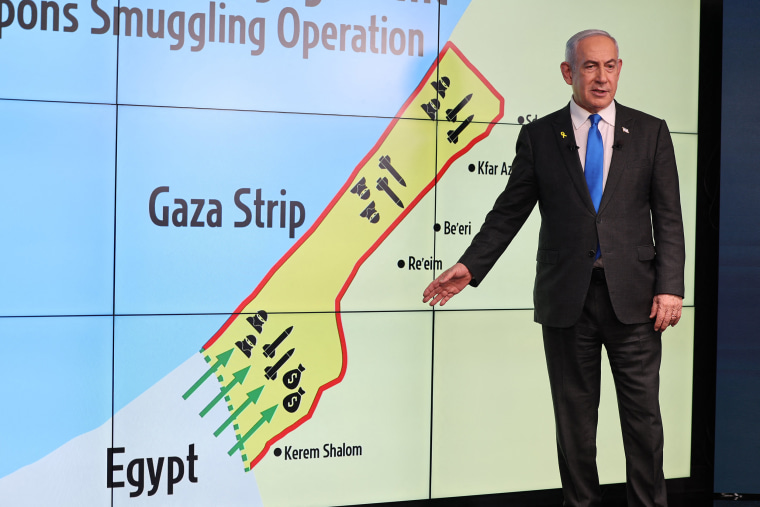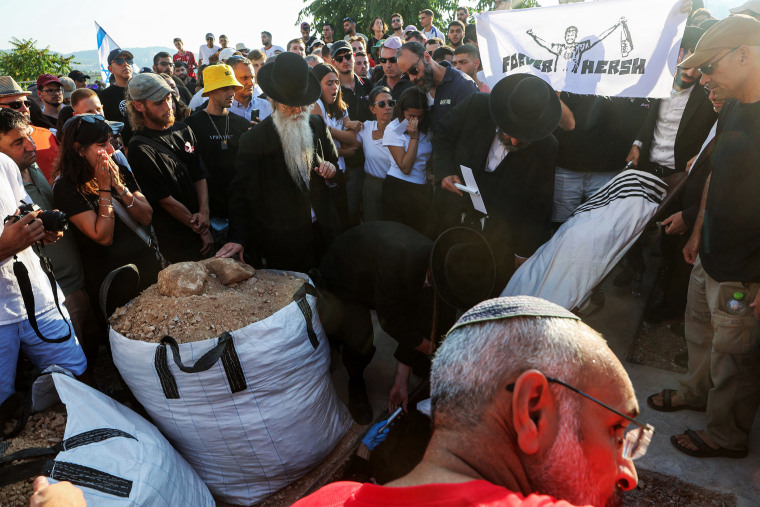A cease-fire between Israel and Hamas is “not close,” Israeli Prime Minister Benjamin Netanyahu said Thursday, rejecting U.S. optimism over a deal and saying his red lines have become “redder” in the wake of the killing of six hostages in Gaza.
Speaking a day after a senior Biden administration official said a deal had been “ninety percent” agreed, Netanyahu told the “Fox and Friends” morning show that was “exactly inaccurate.”
He called the possibility of a looming deal a “false narrative,” and again blamed Hamas, saying “they just want us out of Gaza so they can retake Gaza.”
His comments came after the U.S. official told reporters in a briefing Wednesday that Hamas’ hostage killings and the Israeli leader’s increasingly hard-line stance had complicated Washington’s push for truce.
They said at least two main issues remained: the identity of Palestinian prisoners to be freed in exchange for captives still held in Gaza, and the “redeployment” of Israeli forces in the enclave, with Netanyahu suggesting there will be no deal unless they can remain in an area known as the Philadelphi corridor.
The Israeli leader’s repeated public interventions have also made things more “difficult,” the official said.
Offering perhaps the most detailed view of negotiations yet, the senior official briefed reporters at a pivotal moment — with Netanyahu sticking to his demand despite diplomatic pressure and angry domestic protests.
The U.S. has for months been leading negotiations alongside Qatar and Egypt, hoping to broker a deal that would bring an end to Israel’s nearly yearlong offensive in Gaza and secure the release of hostages held in the enclave since Hamas’ Oct. 7 terror attacks.

Until now, the U.S. has revealed limited details of the talks, but the official said that in the wake of the hostage killings and with Netanyahu’s public comments drawing widespread backlash, the Biden administration felt compelled to shine a light on “what’s actually on the table.”
Read more: What is the ‘Philadelphi corridor?’
The briefing came as NBC News revealed that the families of American hostages held by Hamas have pressed the White House to seriously consider striking a unilateral deal with the militant group to secure their loved ones’ release.
The prospective agreement being negotiated makes no specific mention of the Philadelphi corridor, a narrow strip of land on the Gaza side of the enclave’s border with Egypt, the official told reporters.
Netanyahu has insisted in multiple news conferences this week that Israel must maintain a military presence in the corridor to prevent Hamas from using the border area, including for smuggling weapons into Gaza.
The U.S. official suggested that Netanyahu’s public comments had complicated things, saying that “staking out concrete positions in the middle of a negotiation isn’t always particularly helpful.”

Shining fresh light on how debate around the Philadelphi corridor was impacting negotiations, the U.S. official said that under the prospective agreement the first phase of a truce had included the withdrawal of Israeli troops from all “densely populated areas” in Gaza. But the official said a dispute had emerged over whether the corridor fell under that category.
The official said Israeli negotiators had over the past two weeks produced a proposal that would “significantly reduce” their presence along the corridor and that this would be in line with the agreement. But, the senior official said, “until you have a deal, you don’t have a deal.”
And the official said the Philadelphi corridor was not the only sticking point, with the exchange of Palestinian prisoners for hostages also a point of contention that has been further complicated by last weekend’s news.
The killings brought fresh anguish to families of hostages who had held onto hope that their loved ones would be released in a cease-fire deal, and spurred widespread protests in Israel calling for Netanyahu to agree to a deal. But they also meant that there were now “fewer hostages as part of the deal,” meaning there would also be fewer Palestinian prisoners released in exchange, the official said.
“It’s tragic and awful, and you know, it’s affecting all of us,” the U.S. official said. But, the official said: “Until you have an agreement, the hostages are not coming home, and the war doesn’t stop.”
The killings are “coloring the discussions and have brought a sense of urgency to the process, but it has also called into question Hamas’s readiness to do a deal of any kind,” the official added.

Israel’s foreign minister suggested the same Thursday. “Anyone who cold-bloodedly murders six hostages is not seeking a deal,” Israel Katz said. Right-wing National Security Minister Itamar Ben-Gvir said earlier this week that he was “working to stop the negotiations with Hamas” following the hostage killings.
Hamas accused Netanyahu of trying to “thwart” negotiations. In a post on Telegram early Thursday, the militant group said the Israeli leader’s insistence on keeping troops in the Philadelphi corridor was an attempt to prolong the standoff.
More than 40,000 people have been killed in the Gaza Strip, according to local health officials, since Israel launched its military offensive in the enclave following Hamas’ attack, in which some 1,200 people were killed and and around 250 taken hostage, according to Israeli officials.
Around 100 people are believed to remain held hostage in Gaza, with around a third of them believed to be dead, according to Israeli officials.






